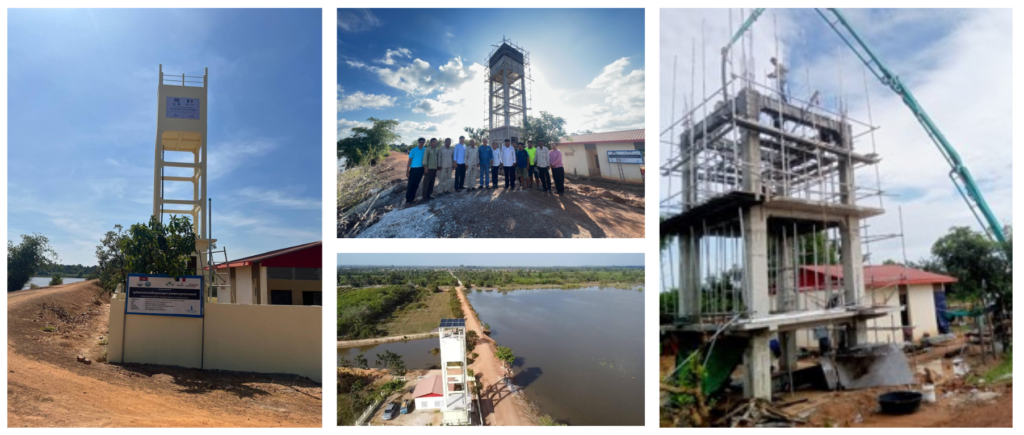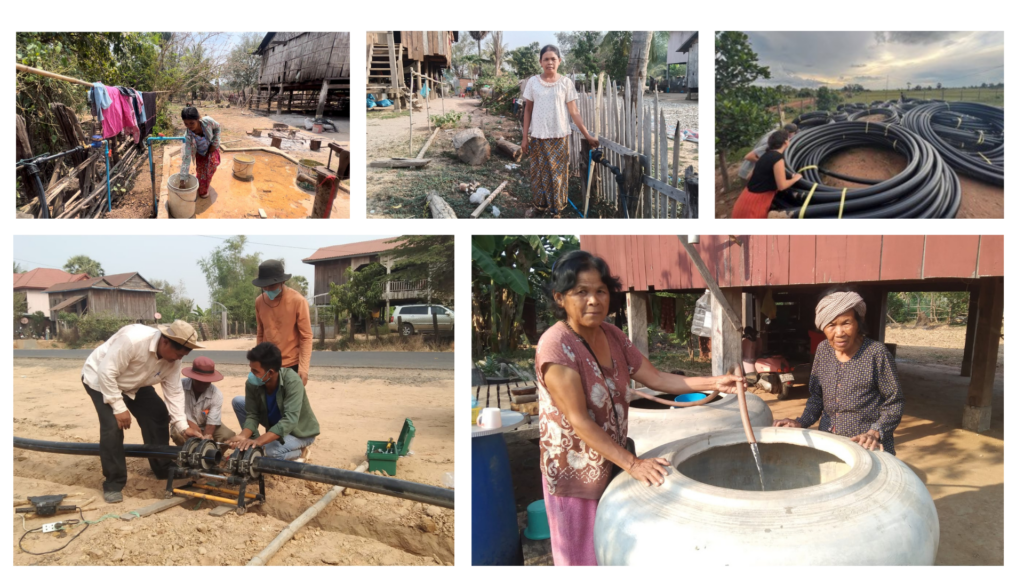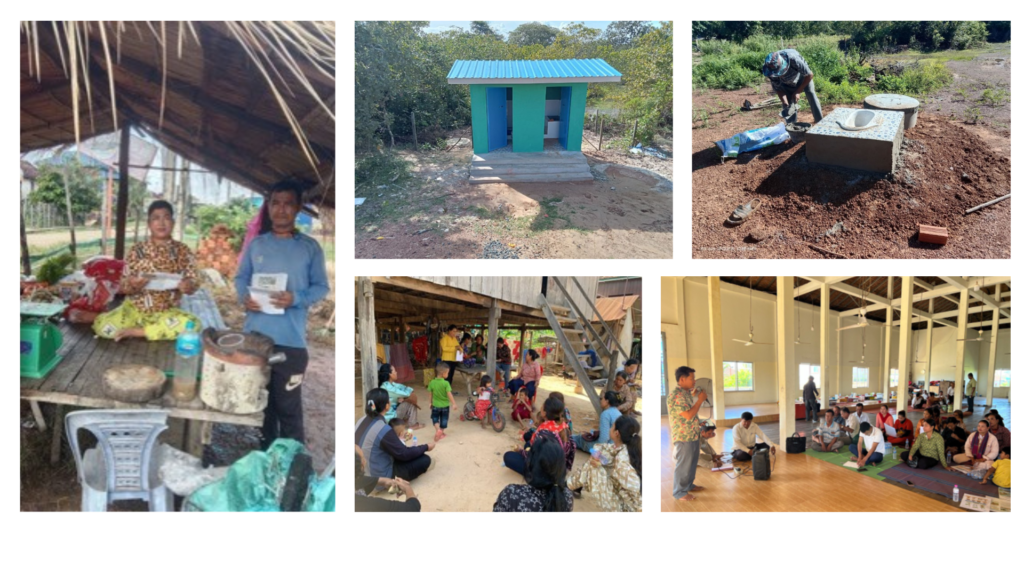The project to improve access to water and sanitation in the communes of Reaksa and Tang Krasov, Cambodia, is ready to be inaugurated!
In partnership with RainWater Cambodia, the project aims to commission a drinking water supply system (from solar drilling to house connections, including the water tower, the treatment unit and the HDPE gravity-fed network) for the 2,200 inhabitants of the Tang Krasov commune. A water management committee has also been set up and trained to ensure the management and sustainability of the system in conjunction with the local and national Cambodian authorities. 86 households (around 430 inhabitants) have already registered to benefit from a home connection and thus have access to safe, controlled water at an affordable cost, enabling the long-term upkeep and maintenance of the works to be financed. The system is due to come on stream at the end of the month, and campaigns to connect people to the network will continue, along with support and training for the village management committee.

In Reaksa, an 800-metre extension to the existing water network was built to reach the village of Samrong, which had no water access infrastructure at all. This enabled 25 new households, or around 125 people, to be connected to the collective network and secure their supply of quality water.

In both communes, a programme to build 150 family latrines is underway, alongside awareness-raising sessions on good water, sanitation and hygiene practices in schools and villages in the 2 communes.
The aim of the programme is to reduce the practice of open defecation and improve hygiene and health conditions in homes and public spaces, while protecting the environment, particularly the soil and groundwater.

The project is part of the institutional and political cooperation between the Rhin Meuse and Loire Bretagne water agencies and the Tonlé Sap Autority, the agency responsible for implementing integrated water resource management around the lake, particularly in the Stung Sen basin, one of its tributaries. It receives financial support from the Rhin Meuse Water Agency and Toulouse Métropole.
